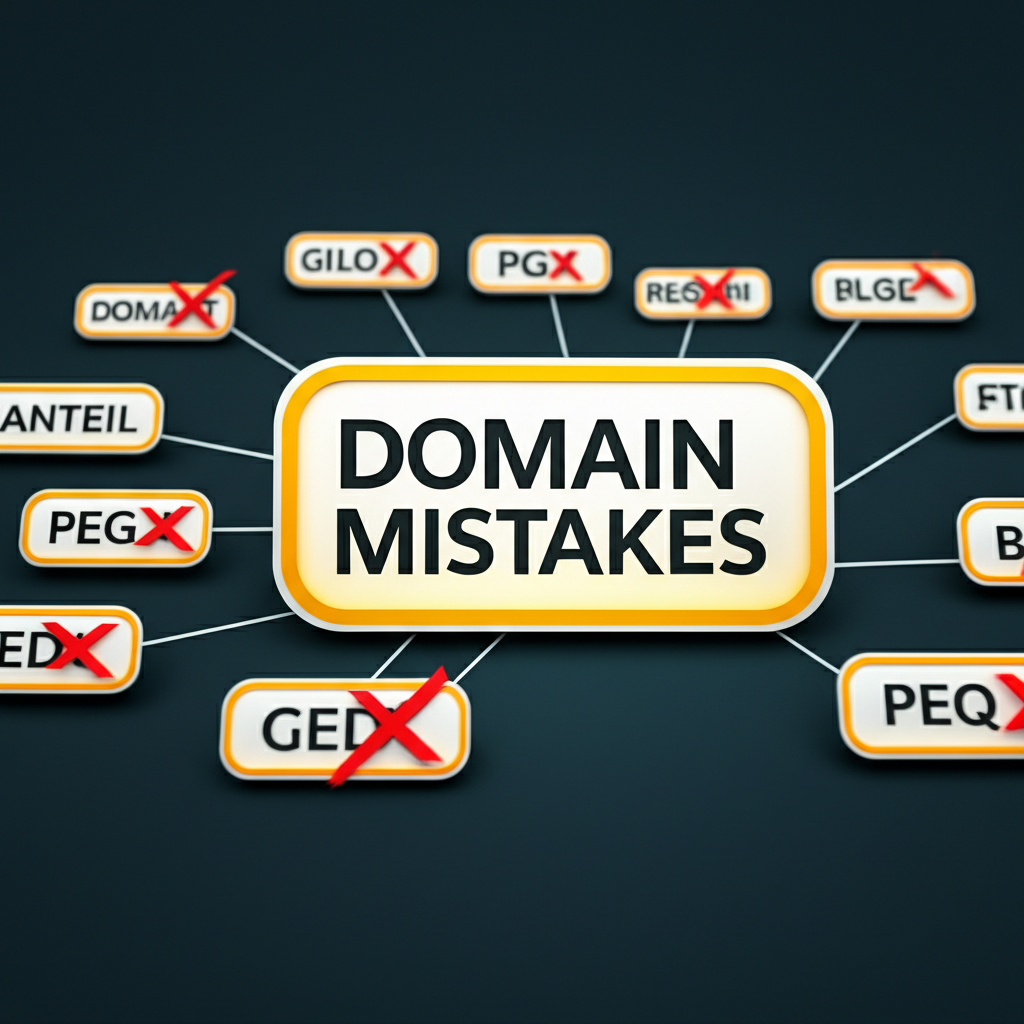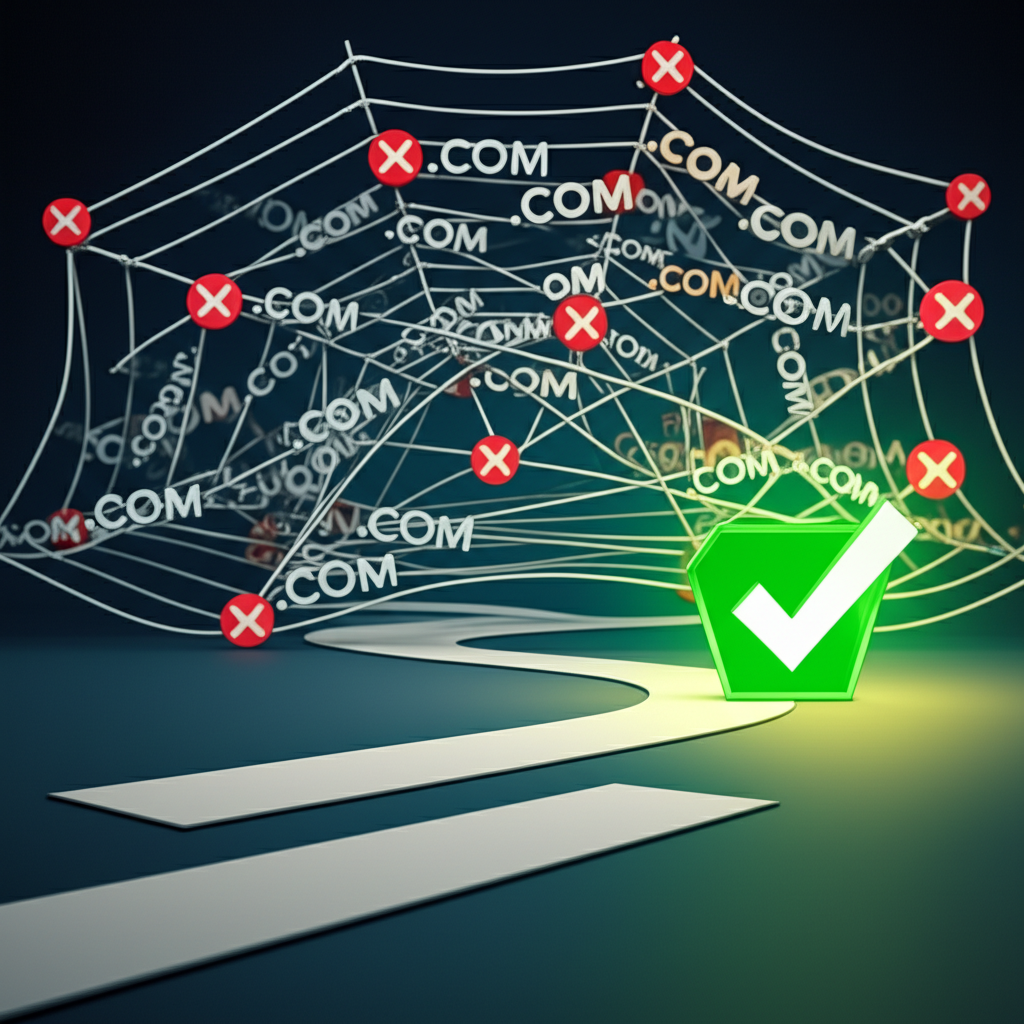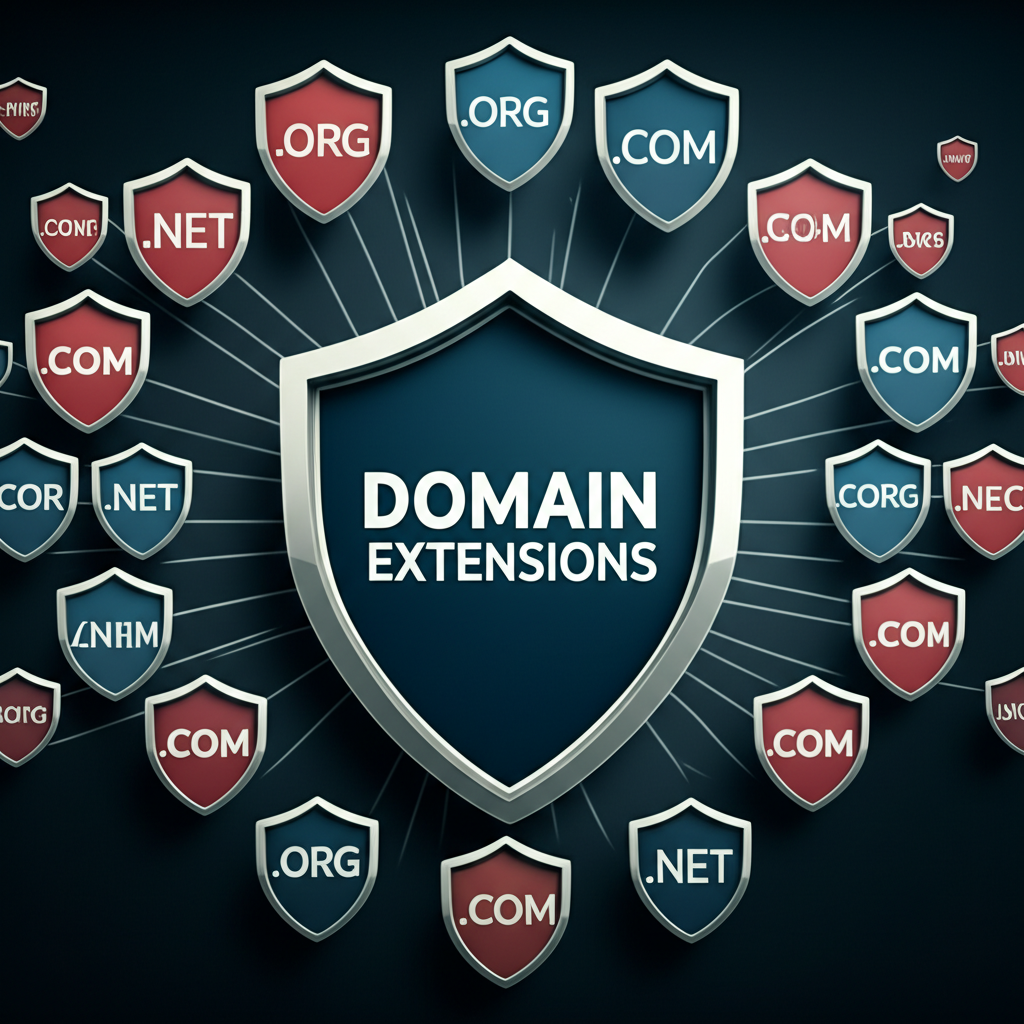- Common Domain Buying Mistakes that Can Hurt Your Website
- 1. Choosing the Wrong Domain Extension
- 2. Neglecting Keyword Research in Your Domain Name
- 3. Ignoring Trademark Infringement
- 4. Making Your Domain Name Too Long or Complicated
- 5. Not Checking for Domain History
- 6. Overlooking Domain Privacy Protection
- 7. Not Planning for the Long Term
- Avoiding Domain Buying Mistakes: A Summary
Domain Buying Mistakes: 7 to Avoid for Best Results
Domain buying is a crucial first step for any online venture, from establishing a business website to launching a personal blog. A well-chosen domain name can significantly impact your online presence, brand recognition, and search engine rankings. However, the process of acquiring the perfect domain can be tricky, and several common pitfalls can lead to future headaches. Avoiding these domain buying mistakes will set you up for online success.
Common Domain Buying Mistakes that Can Hurt Your Website

A seemingly simple task, purchasing a domain can quickly become complicated if you’re not aware of potential issues. Making the wrong choices can lead to lost traffic, branding inconsistencies, and even legal troubles. Let’s delve into seven common domain buying mistakes to avoid:
1. Choosing the Wrong Domain Extension
While “.com” remains the king of domain extensions, opting for less common extensions like “.net,” “.org,” or niche extensions like “.io” or “.co” might seem tempting, especially if your preferred .com is unavailable. However, this can lead to confusion among users, who are accustomed to typing “.com” automatically. If your .com is taken, consider brainstorming alternative names rather than settling for a less recognizable extension. If you must use a different extension, make sure it aligns with your brand and target audience. For example, “.org” is generally associated with non-profits, while “.io” is popular in the tech industry.
2. Neglecting Keyword Research in Your Domain Name
While exact-match domains (domains that perfectly match a target keyword) are no longer the SEO magic bullet they once were, incorporating relevant keywords can still be beneficial. Failing to research relevant keywords means missing out on potential organic traffic. Use keyword research tools to identify relevant terms related to your business and try to incorporate them naturally into your domain name if possible.
3. Ignoring Trademark Infringement
Before settling on a domain name, conduct a thorough trademark search. Using a trademarked name, even unintentionally, can lead to legal disputes and force you to relinquish your domain. This can be costly and damaging to your brand. Tools and legal advice are available to help you navigate trademark searches effectively.
4. Making Your Domain Name Too Long or Complicated
A concise and memorable domain name is crucial for brand recall and easy sharing. Long, complex, or difficult-to-spell domains are prone to typos and make it harder for users to find your website. Aim for a domain name that is short, easy to pronounce, and easy to spell. Avoid using hyphens or numbers, as they can further complicate the user experience.
5. Not Checking for Domain History
Just like buying a used car, it’s essential to check the history of a domain name before purchasing it. A domain with a history of spam or penalties from search engines can negatively impact your website’s SEO performance. Several tools can help you check a domain’s history and identify potential red flags.
6. Overlooking Domain Privacy Protection
When you register a domain, your personal information, including your name, address, and phone number, becomes publicly available in the WHOIS directory. This can lead to unwanted spam, solicitations, and even identity theft. Investing in domain privacy protection shields your information from prying eyes and keeps your inbox clean.
7. Not Planning for the Long Term
Your domain name is a long-term investment in your online presence. Avoid choosing a domain name that limits your future growth or pivots. Consider your long-term business goals and choose a domain that can adapt to your evolving needs. Avoid niche-specific names if you anticipate expanding your offerings in the future.
Avoiding Domain Buying Mistakes: A Summary
By understanding and avoiding these seven common domain buying mistakes, you’ll be well-positioned for online success. A well-chosen domain name is a valuable asset that contributes to brand recognition, user experience, and search engine visibility. Take the time to research, plan, and choose wisely, and your domain will serve as a strong foundation for your online endeavors. Remember, investing a little extra time and effort upfront can save you from significant headaches down the road.















Leave a Reply